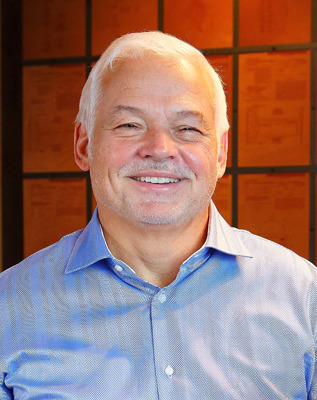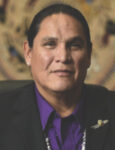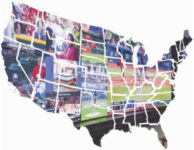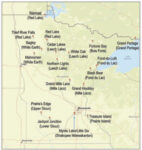
Casinos are marketed as places to win jackpots, but most gamblers go home poorer most of the time. Yet, some return again and again, because gambling is about more than winning money.
I recently spent an evening at Barona Casino playing slots, talking to floor workers and making friends with fellow players. I found a bank of 1990s-era Penny Junction games and mentioned to an attendant that my friend Bob Luciano—whose company designed Penny Junction—would be pleased to know his games are still popular. A woman gambling nearby interrupted, “You know the inventor? Tell him I love these machines!” This being the age of technology, I took out my phone and asked her to tell that to Bob on video. She readily agreed and spoke these words:
“Hello Bob. Thank you very much for the pleasure that you brought to me by inventing these machines. I love ‘em, I’ve lost thousands of dollars and I don’t care, they’ve done better for me than a psychiatrist would. So thank you very much, sweetheart. Merry Christmas.”
She lost money yet continues to play. She’s happy. She’s even thankful. That’s because gambling isn’t about greed or fiscal profit; it’s about faith, dedication, respect and achievement.
Think of a movie such as Rocky, Hunger Games or Star Wars. Each portrays an ordinary person who reluctantly undertakes an extraordinary challenge, discovers hidden personal powers and—with faith, dedication and effort—achieves victory. The world is made a better place. The ordinary person becomes a hero: respected, admired and loved.
This Hero’s Journey is found in myths of every culture throughout recorded time. It is the story of human purpose and achievement—that we are inherently and individually powerful, that our world is threatened, and only with faith and acceptance of risk is a life of meaning achieved.
Each of us hopes to be a hero. Each of us yearns to make a difference. Each of us strives for a life that matters. And nothing makes us feel more heroic than recognition, respect—and love—for the challenges we overcome.
Everyday life is tedious, difficult and discouraging. We grow weary, fearful and disillusioned. That’s why recreation is so important. Recreation isn’t a pastime without purpose. It is the re-creation of an aspect of life, played out within the bounds of simpler rules and abbreviated time. Recreation renews hope, restores energy and reminds us all of purpose and achievement.
Gambling is a powerful recreation because it isn’t spectator sport. Gamblers face personal risk and must persevere until their winning moment arrives. Heroes cannot exist without enemies to vanquish and, in gambling, losses are simply the price of emotional victory.
Recreational gambling—done well—is every bit as important to society as movies, art and literature. Trouble is, we don’t do it well.
I sometimes think spreadsheets are the worst thing ever to happen to gambling management. Spreadsheets allow smart analysts to convincingly project a false future. Smart analysts tell us, “If we increase the hold percentage here and cut back on staffing there, margins will rise by umpteen percent.” The Hero’s Journey doesn’t fit in that spreadsheet, and we end up making gamblers feel like chumps. Margins do rise but fewer players are satisfied. Volume falls. Profits tumble. More cost cutting ensues and the business—and player experience—spirals downward.
Virtually every technology casinos installed in the ’80s and ’90s—loyalty points, player cards, TITO—were intended to improve efficiency, not the player experience. We’ve reduced customers to numbers. We’ve degraded personalization to the point of separating players into categories defined only by levels of spend. And we pretend this somehow represents loyalty.
Worst of all, we build games and rewards that encourage gamblers to wager beyond their means. Communities turn against us. Players can’t tell friends that they like to gamble for fear of castigation. Heroism isn’t associated with shame.
Is it any wonder that gambling growth is gone?
I visited Barona because they’re growing. Guests are treated as friends. Accomplishments are celebrated. Personal interactions between players and staff are encouraged. Labor costs rise but profits grow even faster. The woman who admired Bob Luciano’s machines was empowered by that Barona experience and gained the respect, admiration and love a psychiatrist could never provide.
We can learn from Barona and go beyond. Just as old technology led to the decline of casinos, new technology will drive its resurgence, with artificial intelligence leading the way.
All casinos have massive stores of player behavior data. We’ll feed that data into our AI to learn what each player is doing and use mobile communications to instantly instruct our employees to beneficially intercede. We’ll greet people when they arrive, provide a favorite drink without being asked, celebrate wins and give consolation when losses occur.
We’ll determine when a player is overspending and respectfully mediate. We’ll even learn to predict what players are going to do next and prepare to assist and encourage. This new technology allows us to send every player home a hero—renewed, reinvigorated and ready for the challenges of their everyday world. All while we profit by providing the service.
That future won’t come without leadership, without risk, energy or effort. But then, that’s your Hero’s Journey.













